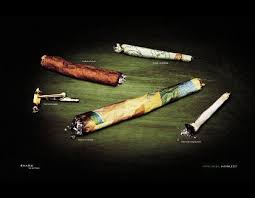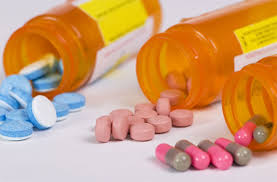Rehab Articles

sex addiction, drug addiction
A new study at the University of Cambridge shows that sex addiction and drug addiction have similar brain activity. The study found that individuals with a sex addiction who view pornography experience brain activity that is very similar to the brain activity caused by drug use for individuals who have a drug addiction. The researchers found that the number of people with a sex addiction can be as high as 1 in 25, and this is a considerable amount of the population. The study involved 19 patients who all suffered with sex addiction, and the brain activity of the study participants were compared to brain activity from healthy subjects without sex addiction or drug addiction issues. The male study subjects were shown a video series that involved either sports programs or sexually explicit content.
University of Cambridge Wellcome Trust Intermediate Clinical Fellow Dr. Valerie Voon stated “The patients in our trial were all people who had substantial difficulties controlling their sexual behavior and this was having significant consequences for them, affecting their lives and relationships. In many ways, they show similarities in their behavior to patients with drug addictions. We wanted to see if these similarities were reflected in brain activity, too.” Voon went on to say “There are clear differences in brain activity between patients who have compulsive sexual behavior and healthy volunteers. These differences mirror those of drug addicts. Whilst these findings are interesting, it’s important to note, however, that they could not be used to diagnose the condition. Nor does our research necessarily provide evidence that these individuals are addicted to porn — or that porn is inherently addictive. Much more research is required to understand this relationship between compulsive sexual behavior and drug addiction.”
Rehab Articles

substance abuse, drug addiction, alcohol abuse
1. Worry- Substance abuse can have a profound effect on your family members and friends. These individuals may worry constantly because of your drug addiction or alcohol abuse, concerned that your drug addiction will harm you or someone else. When you are away from loved ones they may worry that you can not control your substance abuse.
2. Helpless- Family members often feel helpless over your substance abuse, and they may feel like there is nothing that they can do. This is true to a point, but feeling helpless can be eliminated by arranging for an intervention and then a stay in a drug addiction or alcohol abuse treatment center.
3. Frustration- Frustration is common among family members who are dealing with substance abuse by a loved one. The family member may feel frustrated because they try to help but the user continues their destructive habits. As a family member you may feel like giving up but you can get through if you are persistent.
4. Fear- In many cases of drug addiction and alcohol abuse the loved ones feel fear because of the risks and medical consequences of substance abuse. Your family may be concerned that you will overdose and die, or that constant drinking may destroy your liver and health.
5. Anger- Anger is another emotion that substance abuse by a family member can cause. It is often a first reaction to be mad at the user or view this problem as one of not enough willpower, but this is not the case.
Rehab Articles

Prescription drug abuse, drug addiction
Prescription drug abuse or drug addiction is not something that anyone wants to have. What causes prescription drug abuse though, and why do some people experience this problem while others seem almost immune to prescription drug addiction? There are social and genetic factors involved in addiction, and some people are more vulnerable or predisposed to substance abuse than others. There is no way to pinpoint who is at the highest risk for abuse and addiction when it comes to prescription drugs or even street drugs, and engaging in substance abuse is like playing Russian roulette. A family history of substance abuse can mean a higher risk for prescription drug abuse but this may not always be the case. Peer pressure and social issues also play a role in the abuse of any type of substance.
In many cases prescription drug abuse or drug addiction starts out with legitimate medications. The individual may need pain medications like Vicodin or codeine because they have been injured, had dental work performed, or undergone a medical procedure that makes prescription pain medication necessary. Over time prescription drug abuse occurs because the individual has developed a tolerance for the drug so more is needed to achieve the same effect. Eventually the user is taken off the prescription pain medication but the addiction continues, and the user starts to look for the drug on the street. Prescription drug abuse is a serious problem and treatment should be sought immediately if you or someone you care about has this problem.
Rehab Articles

1. Avoid Medications with High Abuse Potential- One of the most common relapse prevention tips for drug addiction and alcohol abuse is to avoid any medications that may be habit forming or that have a high addiction potential unless these drugs are absolutely necessary. Many people who have a substance abuse problem may trade one substance for another, and these medications have a high potential for abuse and addiction.
2. Change Your Habits and Hangouts- Find new friends and new places to spend your time. One of the biggest causes of relapse is slipping back into old habits, and going to the same places or hanging out with the same crowd can cause a relapse to occur.
3. Find Sober Activities and Substance Free Events- Recovering from drug addiction or alcohol abuse does not mean staying locked up in your home, but you must be careful about the events and activities that you take part in. Find sober activities and substance free events to stay social without risking a relapse at the same time.
4. Create a Support Network-Your support network can not be too large, and you should make sure that this network includes people and organizations that you can contact 24/7 when you are feeling low or need encouragement to stay on the road to recovery.
5. Know When and Where 12 Step Meetings are Held in Your Local Area- 12 step meetings can help you avoid temptation, and many cities and areas have places which hold this meetings frequently. In larger cities it is possible to find these meetings 7 days a week, and that can be beneficial if you feel a relapse coming on.
Hopefully these relapse prevention tips for drug addiction and alcohol abuse help you stay sober and reinforce your recovery goals.



